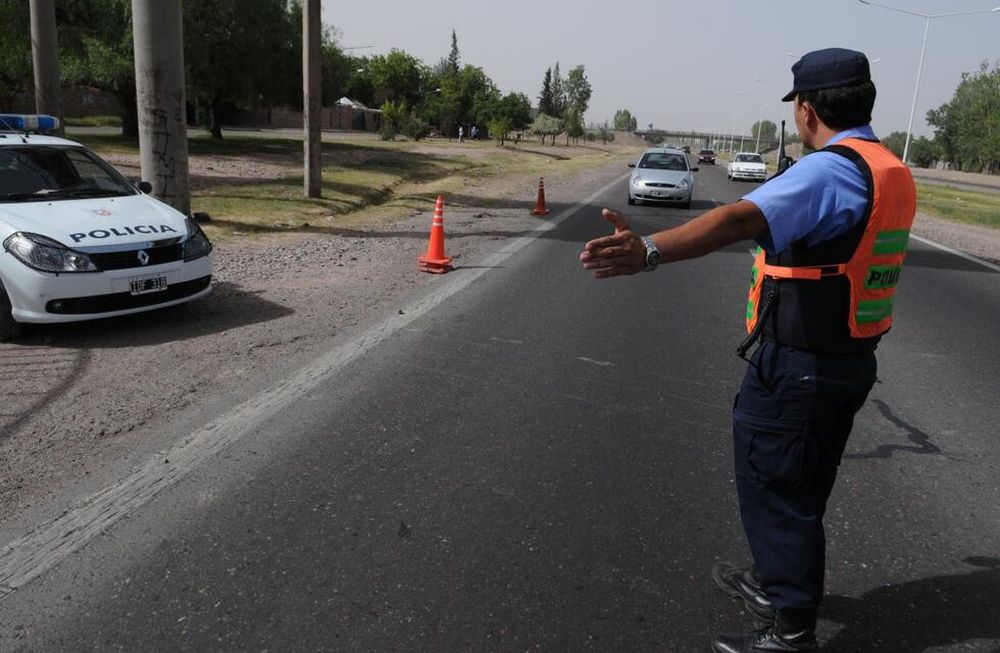Driver's License: What are the changes and updates to the Traffic Law?, on Aconcagua Radio

In an interview onAconcagua Radio , Damián Aguirre, a road safety instructor at the National Road Safety Agency , addressed the changes in traffic regulations in Mendoza and explained how the differences between national and provincial laws generate confusion, despite attempts to unify criteria throughout the country.
One of the main points Aguirre highlighted was the federal nature of the Argentine transit system, which gives each province the autonomy to legislate on the matter. "In Argentina, there are 24 different traffic laws," the specialist explained, adding that the nation, in an attempt to unify regulations, created the National Traffic Law in 1994. However, "there are provinces that adhere to the law, and there are provinces like Mendoza and the Autonomous City of Buenos Aires, which are currently the only two jurisdictions that do not adhere to it; they still maintain their own laws."
Driver runs over and kills police officer during traffic stop

Driver runs over and kills police officer during traffic stop
One of the most confusing aspects for Mendoza residents is the issuance of a driver's license. While in most provinces, licenses are issued by municipalities, in Mendoza, until recently, the provincial police were in charge of this process. Aguirre clarified that, although Mendoza residents receive a license issued by the municipalities, "the licenses are municipal" and, in fact, "the license is valid throughout the country, including Chile."
Furthermore, in 2008, the National Road Safety Agency detected that more than 1,200 municipalities in Argentina were issuing licenses with different formats, categories, and validity periods, which was causing problems during inspections. Therefore, the creation of the "national driver's license" was promoted. "What people have wanted to do is create a single format, and have all municipalities agree to issue the same format," Aguirre explained.
Regarding the recent changes in Mendoza, Aguirre emphasized the changes in the validity of driver's licenses. For private categories, Mendoza had established a 10-year validity period until the age of 65 in 2023, while national legislation establishes a five-year validity period until the same age. "Mendoza has reserved the license validity period for private categories," he indicated.
Regarding professional licenses, there was also an important change. Until recently, professional licenses were granted for two years for those under 45 and for one year for those over that age. Now, "professional licenses are granted for five years until age 65, then for two years until age 70, and after age 70, they are granted for one year."
Is the digital license sufficient?Aguirre also highlighted a key change regarding the license format. "Today, the text of the law changes; they reverse it: the valid one is the digital one, and the physical one is complementary," he explained, referring to the fact that the digital license, which can be carried on a mobile phone, is the legally valid one. The physical license, although still portable, will no longer expire, as the expiration date corresponds to the digital version.
What happens with a change of address?One of the most confusing areas for Mendoza drivers is the change of address on their license. Aguirre explained that, until now, drivers who moved to another municipality had to update their license within 90 days. "The problem is that people didn't know this," he acknowledged, noting that many don't associate their DNI with their driver's license.
However, he emphasized that Mendoza is already working on a significant change, announcing that "the director of the executive unit for road safety has already announced that a project has been submitted and that this will be changed." Soon, residents of Mendoza will be able to change their address on their license without having to complete this process within 90 days, as has been the case until now.
RTO: Modifications and deadlinesAnother important topic addressed by Aguirre was the Mandatory Technical Inspection (MTI). The amendment to the law establishes that brand new vehicles will now have a five-year grace period before requiring their first MTI, and subsequent inspections will be performed every two years until the vehicle reaches 10 years of age. After that age, an annual MTI will be required.
"Transportation vehicles still have a maximum grace period of one year," he clarified, adding that the changes to this regulation represent an improvement for private vehicle owners.
The challenge of a federal countryIn his speech, Aguirre reflected on the difficulties the federal system poses in achieving unified regulations. "We are 24 countries that have come together and formed a nation," he said, noting that the lack of uniformity in traffic laws is a direct consequence of the country's federal nature. However, he emphasized that "in general terms, we are more or less on the same path."
The expert also emphasized the importance of knowing local laws when traveling around the country. "You should always study the legislation of the province you're visiting," he stated, citing as an example the mandatory RTO (Routine Traffic Control System) in some provinces, such as San Luis and San Juan, and the requirement for using them when traveling on their roads.
As traffic legislation in Mendoza is being organized, changes and updates continue to emerge. However, the task of unifying criteria nationwide remains a pending challenge.
Listen to the full article here, and you can listen to the radio live at www.aconcaguaradio.com .
losandes





